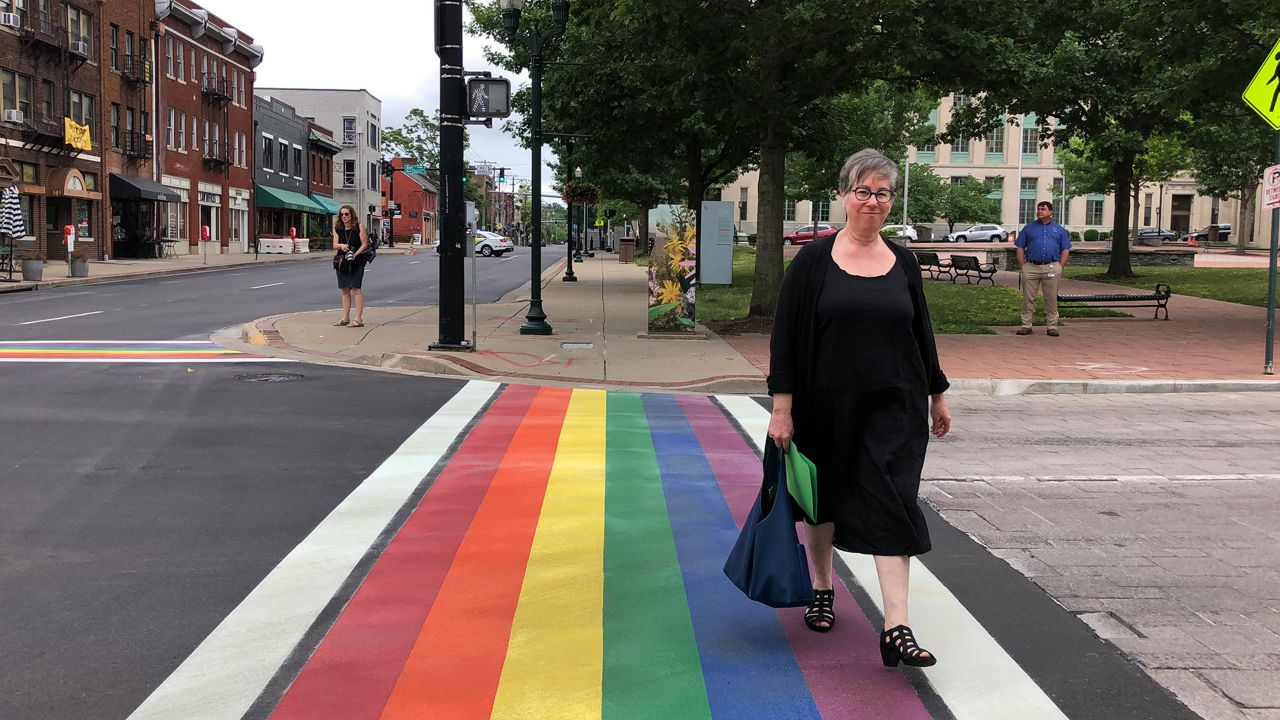LEXINGTON, Ky. — June is Pride Month, when the world’s LGBTQ communities come together and celebrate the freedom to be themselves, and the city of Lexington has a myriad of activities and events planned in accordance.
One new citywide effort is LexProud, a website and campaign of the Lexington-Fayette Urban County Government (LFUCG) that serves as a hub for LGBTQ resources and information. In 2017, the Lexington mayor’s office appointed an employed to be a liason for the city’s LGBTQ residents. Craig Cammack has worked in that role since Mayor Linda Gorton took office in 2019.

“LexProud started with basically having a page on the city government’s website as a resource for LGBTQ residents,” Cammack said. “It is intended to provide information to whoever chooses to look at it about how Lexington supports the LGBTQ community. It’s another avenue we use to tell people to be proud of who they are, that they can be who they are in our town and be proud of our city for supporting diversity.”
In 2021, Lexington received the highest achievable score on the Human Rights Campaign Municipal Equality Index (HRC MEI) with 100/100. Each year, the Human Rights Campaign evaluates over 500 cities from across the nation on the policies, laws, and services being offered to the LGBTQ community. This analysis is used to produce the organization’s Municipal Equality Index (MEI) report. HRC is the largest civil rights organization working to achieve equality for LGBTQ Americans.
“Lexington has been rated since 2013, and over the years, we’ve progressively gotten better and better on those scores,” Cammack said. “What this program does is it looks at the policies and ordinances laws of a municipality to see how supportive they are of the LGBTQ population in their city. We started with a score of 53 back in 2013. In 2021, we received our highest score, but also the highest score in the state–with some bonus points allowed, but we got 106 out of 100, which is great.”
Lexington has been evaluated by HRC every year since 2013. In 2019, Gorton appointed a group of Lexington residents and LFUCG staff to review the city’s HRC MEI scoresheet and explore ways the city could improve policies and laws to better support the LGBTQ community.
Cammack said several things that have occurred over the years that enabled Lexington to increase its score, one of which is a fairness ordinance.
“We adopted the first countywide fairness ordinance in Kentucky back in 1999,” he said. “What that does is protect the LGBTQ community against employment, housing and public accommodations discrimination. There is no statewide law that does that, so cities from across the state have been doing that on their own to protect their residents.”
“Not only is the HRC MEI evaluation important for the protection of LGBTQ residents, it is also often used by employers to choose potential locations for businesses, by potential new residents, and by those looking to travel to locations that provide LGBTQ protections,” according to the group’s report to the mayor. “According to a study by Richard Florida, The Geography of Tolerance, research shows diversity and inclusivity is important to the economic growth of a municipality.”
Lexington is also one of the few cities in Kentucky to pass a ban on conversion therapy for LGBTQ youth. The city has also adopted a nondiscrimination clause in its contracts with people who do work for the city and has formed a local human rights commission.
Cammack cited several reasons Lexington is progressive regarding policies related to the LGBTQ community.
“I think one is just being a city with a big population,” he said. “Because of that, you are more likely to interact with diverse, different people, and that interaction might change your mind about how you feel or your preconceived notions about different people. I think that’s true across the board, not necessarily just LGBTQ-oriented interactions. I think Lexington, as a whole, has been pretty progressive in general.”
He said another factor is the University of Kentucky.
“We have many professors and staff members at UK who come from all around the world to live here,” he said. “I think that is definitely helpful.”



